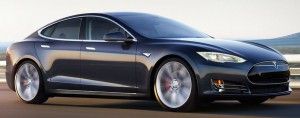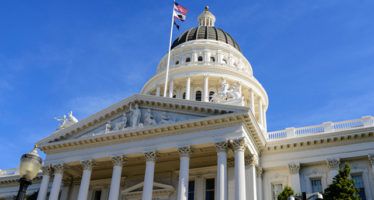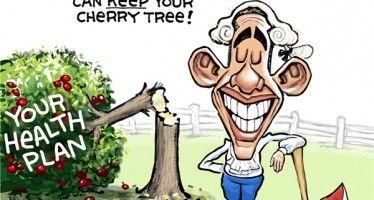CA’s Tesla challenges other states’ dealership laws
 California’s Tesla Motors Inc. is proving as revolutionary in selling cars as making them. It’s challenging states that mandate new cars be sold only through dealerships by pushing to offer its premium electric vehicles directly through company showrooms.
California’s Tesla Motors Inc. is proving as revolutionary in selling cars as making them. It’s challenging states that mandate new cars be sold only through dealerships by pushing to offer its premium electric vehicles directly through company showrooms.
The two sides raced each other recently in a debate sponsored by the Texas Conservative Coalition Research Institute. The verbal drag-race pitted Ricardo Reyes, Tesla’s vice president of communications, against Bill Wolters, president of the Texas Automobile Dealers Association.
Each side maintained the other was upholding a monopoly. Reyes insisted the Texas law, by preventing Tesla from selling cars directly, erected a monopoly consisting of state dealers. Wolters said the opposite was true: That Tesla, by cutting out the dealers and selling cars only by itself, was monopolizing the market.
Interstate Commerce Clause
At issue was the Interstate Commerce Clause of the U.S. Constitution, which gives Congress alone the power “to regulate commerce with foreign nations, and among the several states, and with the Indian tribes.” It established a vast free-trade zone among the 50 states, a keystone of American prosperity.
The debate was reported in the Texas Tribune.
“How does a manufacturer of a product that owns every retail outlet benefit a consumer or the state of Texas?” Wolters asked.
Reyes responded, “All we’re asking to do is be allowed, unfettered, to compete.”
According to the Tribune, Reyes called his company the “underdog.”
Reyes insisted that Tesla just wants to sell directly to its customers. Currently, Tesla sells no cars in Texas, but in 2015 plans to sell 55,000 nationally and abroad, Fortune reported yesterday. That’s a fraction of total expected U.S. vehicle sales of more than 17 million, according to Automotive News.
Also yesterday, Reuters reported on the company’s financial problems, “Tesla Motors Inc missed fourth-quarter sales targets and analysts’ profit expectations, but Chief Executive Officer Elon Musk on Wednesday said by 2025 Tesla’s growth trajectory could take its market value to $700 billion, matching that of Apple Inc.
“It was a glimmer of optimism capping a difficult quarter that saw the electric-car company struggle with production and delivery issues on several fronts, notably in China.”
Although perhaps utopian, it’s that promise of Apple-like success that concerns dealers in Texas and elsewhere. Musk did not attend the debate.
Wolters addressed the replacement threat directly at the debate. “If we didn’t have franchise laws, the manufacturers, as they should, would focus on their shareholders and only have dealerships in the most profitable, highly populated areas of our state,” he said. “Do we want to jeopardize two-thirds of the dealerships in our state?”
Reyes said, “It is odd to me that the only thing consumers can’t buy direct is booze and cars in this state. Imagine the Girl Scouts having to sell through a distributor network. Imagine Apple having to sell through a distributor network.”
Prohibition
The alcohol example is interesting because it involves a quirk in the Constitution. Alcohol Prohibition, “the Noble Experiment” from 1920-32, was imposed with the 18th Amendment, which banned manufacturing or importing alcohol except for medicinal or religious purposes.
It was enforced through the Volstead Act and other federal laws.
However, when Prohibition was repealed, the 21st Amendment allowed the states to carve out their own distribution laws for alcohol. It reads, “The transportation or importation into any state, territory, or possession of the United States for delivery or use therein of intoxicating liquors, in violation of the laws thereof, is hereby prohibited.”
Note the clause, “in violation of the laws thereof” — meaning state laws.
That’s why California has very liberal alcohol laws. But in Pennsylvania, as Forbes recently reported, “If you want to buy beer, you have to go to a beer store or distributor. If you want to buy spirits, you have to go to a state-run liquor store.”
But there’s no 21st amendment for anything besides alcohol.
Foie gras
Ironically, California itself is challenging the Interstate Commerce Clause in its controversy over foie gras, insisting that a state ban on the culinary delicacy’s production and use includes banning importing it from other states and countries.
State restaurants have retorted that, although the state can ban specially fattening a goose — the way it’s made — it can’t ban importing foie gras.
As CalWatchDog.com reported, Attorney General Kamala Harris is appealing a January ruling by U.S. District Court Judge Stephen Watson that federal law preempts state law on importing foie gras.
Arizona
Texas’ action also is somewhat ironic, given its boast of having fewer regulations and a more pro-business environment than California.
Tesla is faring batter in the Grand Canyon State. Reported the Arizona Republic:
“House Bill 2216 would effectively upend the decades-old system that prohibits manufacturers from competing with dealerships through direct sales. Tesla is pushing a bill similar to one that failed a year ago in hopes that a new governor and Legislature are more open to what it sees as free-market principles.
“Standing in the way are the state’s car dealers, a group that directly employs about 24,000 Arizonans and accounts for $2 billion in sales taxes, a crucial element of the state’s revenue. They see Tesla as seeking an exception that would allow it to establish monopoly powers that threaten the state’s broader economy.”
But Tesla owners, by definition an upscale group able to purchase a $101,500 car, may have the last say. Mark Rohde told the Republic, “As a consumer, I don’t need a dealer to take care of me. I don’t need a middle man. If you believe in free-market economies, then you better get behind free-market economies.”
John Seiler
John Seiler has been writing about California for 25 years. That includes 22 years as an editorial writer for the Orange County Register and two years for CalWatchDog.com, where he is managing editor. He attended the University of Michigan and graduated from Hillsdale College. He was a Russian linguist in U.S. Army military intelligence from 1978 to 1982. He was an editor and writer for Phillips Publishing Company from 1983 to 1986. He has written for Policy Review, Chronicles, LewRockwell.com, Flash Report and numerous other publications. His email: [email protected]
Related Articles
School Funding Reform Skewered by CTA
JULY 11, 2011 By WAYNE LUSVARDI In California, all good ideas for school reform seem to end up in the corner
CA Legislature seeks data on race, sexual orientation of lobbyists
SACRAMENTO – A letter late last month from the state Legislature’s six special-interest caucuses asking California lobbying firms to provide




